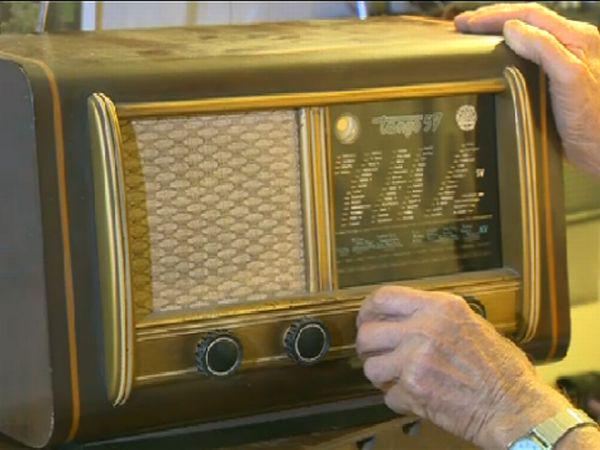
On September 1, 1928, Radio Ljubljana signed on for the first time, with regular transmissions following a month later. The station was a relative latecomer to the European radio dial; even within Yugoslavia, Radio Zagreb had already begun broadcasting two years earlier.
But the launch of Radio Ljubljana was an important event for Slovenian national identity. For the first time, Slovenian music and the Slovenian language could be heard on the air and in living rooms throughout Europe. Even though there was no country called Slovenia, Radio Ljubljana ensured that the Slovenian people had a voice of their own at the dawn of the Information Age.
In the 1930s, however, Radio Ljubljana played a role in another, still little-known broadcasting endeavor. At a time when the British Broadcasting Corporation had a monopoly in the United Kingdom, one colorful inventor and entrepreneur, Leonard F. Plugge, decided to establish a competing commercial service by circumventing British regulations. Plugge had a passion for the new medium of radio; he was one of the first owners of a radio-equipped car and used it to travel around Europe, visiting various radio stations long the way. Those contacts helped him to come up with the idea of International Broadcasting Corporation, known as IBC.
Plugge negotiated a series of deals with Continental European radio stations, paying them to broadcast his advertising-supported, English-language IBC programming at certain hours of the day. Those broadcasts were then picked up by listeners in the United Kingdom, giving them a lively alternative to the often staid and formal BBC offerings. Especially on Sundays, it wasn’t unusual for more people to tune in to the IBC broadcasts than the BBC. And for several years, Radio Ljubljana was one of the stations broadcasting IBC programming.
Compared to IBC’s other partner stations, most of them located in France, Radio Ljubljana’s contribution was limited: It usually broadcast a few concerts a week for the British audience. However, this was still quite an achievement for the most distant station in Plugge’s network. Each week, British listeners would tune in to a station broadcasting to them in English from more than 1000 kilometers away. (The station’s impressive range was made possible by the relative scarcity of radio stations in interwar Europe.)
By the late 1930s, Plugge had grander plans for the IBC. He wanted to expand his network and establish an even more formidable competitor to the BBC. It’s quite likely that Ljubljana would have had a greater role in the years to come. Unfortunately for Plugge, the outbreak of World War II changed everything. Nervous governments took full control of radio stations across Europe and his IBC broadcasts came to an end. The company was revived after the war, but in the form of a recording studio. It never reentered the radio business.
The demise of IBC also meant the end of Radio Ljubljana’s international adventure. It wouldn’t be until decades later that Radio Slovenia’s station in Maribor began English-language broadcasts and, with the advent of the Internet, again began to attract listeners far beyond Slovenia’s borders.

































































